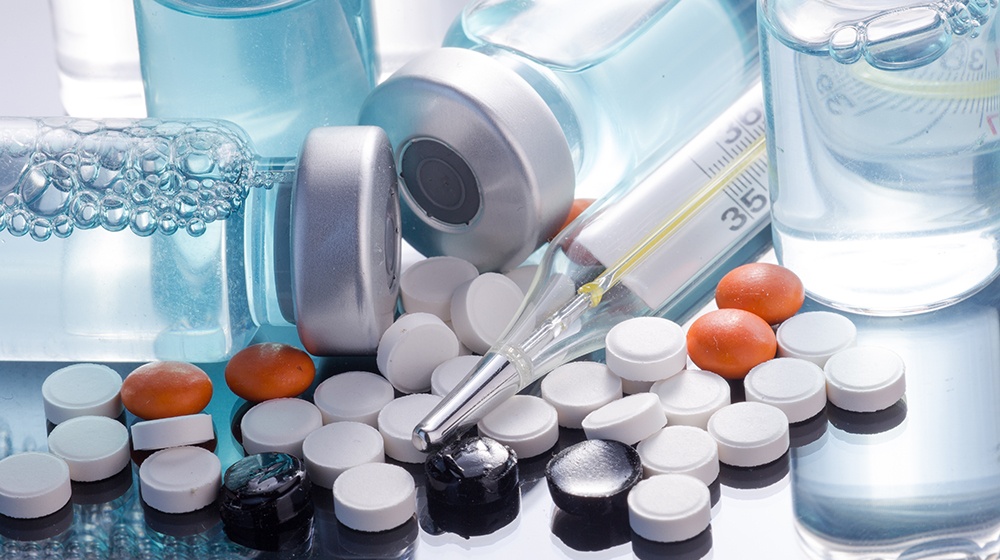Registration & Licensing System of Drugs and Medical Devices in times of COVID-19

In India, import, manufacturing, sale and distribution of drugs and medical devices is regulated under the Drugs & Cosmetics Act, 1940 (the Act), Drug & Cosmetic Rules, 1945 and Medical Devices Rules, 2017. The registration of both drugs and medical devices are processed by the Central Drug Standards Control Organisation (CDSCO) under the Directorate General of Health Services, Ministry of Health and Family Welfare. CDSCO serves parallel function to the European Medicines Agency of the European Union, the MFDS or KFDA of Korea, the PMDA of Japan, the Food and Drug Administration of the United States and the Medicines and Healthcare products Regulatory Agency of the United Kingdom.
Regulatory Requirement for importing medical devices in India
For importing drugs and medical devices in India, obtaining registration certificate and import license from CDSCO is a mandatory requirement. At present, only those medical device categories which are listed as ‘notified device’ by the CDSCO can be registered for its import, manufacturing, sale and distribution in India. Several medical devices are still classified as a ‘drug’ under the Act, and require regulatory approval.
To import medical devices in India, the applicant is required to submit an application in the prescribed form, to the CDSCO’s licensing authority for obtaining registration certificate and import license. The licensing authority usually issues the registration certificate within 9 months from the date of receipt of the application, submission of accurate documentation and the registration fees. The registration certificate shall be valid for 3 years and may be renewed thereafter.
Relaxation amid spread of Novel Corona-virus (COVID-19)
In order to encourage research & development of medical devices and drugs for diagnosis and treatment of COVID-19, CDSCO has recently issued a notification giving high priority to applicants having a drug or medical device under development for COVID-19.
For relaxing the process, CDSCO has provided that:
- an applicant having medical devices or drugs under development for COVID-19 can approach the Drug Controller General of India (DCGI) for easing the regulatory pathway;
- medical devices or drugs/vaccine that are already approved for COVID-19 in any other country can be reviewed in an expedited manner for approval for marketing and distribution in India;
- data requirement for clinical performance evaluation, animal toxicity study, clinical study, stability study, etc. may be abridged, deferred or waived on case to case basis depending on type and nature of medical instrument, existing data on the product and evidence of available clinical performance evaluation of such medical device, or plant from which the drug is extracted and its experience in case of phyto-pharmaceuticals;
- application to manufacture or import medical devices for test, evaluation and further use in performance evaluation may be processed on priority within 7 days;
- application to manufacture or import drug/vaccine for test, analysis and further use bioavailability/ bioequivalence (BA/BE) or clinical trials may be processed within 7 days;
- application for conducting performance evaluation and applications to import or manufacture medical devices for sale and distribution would be processed on priority through expedited review/accelerated approval;
- any firm or research institute having protocol for repurposing of existing drugs/vaccines for treatment of COVID-19 will also be given priority for review and approval;
- applications for clinical trial permission and applications to import or manufacture drug/vaccine for sale and distribution would be processed on priority though expedited review/accelerated approval; and
- in case of emergency, import license may be granted without the registration certificate subject to approval from the Central Government.
Fast Track Approval for COVID-19 testing kits for commercial use
Indian Council of Medical Research (ICMR) has recommended two reverse transcription polymerase chain reaction (RT-PCR) test kits for commercial use in ICMR approved government and private laboratories. ICMR has established a fast-track mechanism for validation of non-US FDA EUA/CE IVD approved kits at ICMR National Institute of Virology (NIV) Pune. Till date ICMR NIV Pune has completed evaluation of 9 non-US FDA EUA/CE IVD kits.
In order to combat limited testing facilities and expensive testing kits, India has waived off the need for DCGI’s approval for COVID-19 testing kits that are developed locally. CDSCO on 23rd March, 2020 approved a Pune-based molecular diagnostics company, Mylab Discovery Solutions which specializes in molecular diagnostic kits. Further, Germany’s Altona Diagnostics is another company to win approval of CDSCO for its diagnostic kit for testing coronavirus. The name of Altona Diagnostics kit is 'RealStar SARS-CoV-2 RT-PCR kit 1.0'.
Patentability of COVID-19 test kits and other medical devices
Invention of medical devices can be protected by obtaining patent registration in India. While COVID-19 is being considered as a pandemic and a public health emergency, its testing kits being developed worldwide can be patented in India.
An applicant, whether an Indian resident or foreign resident may file a patent application for its medical device through government’s online e-filing portal for grant of patent.
Given the urgency of putting the drug or medical device for immediate commercial use, the applicant may file a provisional application, wherein, the inventor’s work is still in progress or it envisages any change to the specification that are to be filed with the authorities. The period of validity of a provisional application is one year. In the event that the inventor is clear about the specifications and the invention, then, it can file for the application with complete specifications which generally a longer process. While, this is not a grant of patent, but it gives the inventor/applicant interim or immediate protection on the invention and its use.